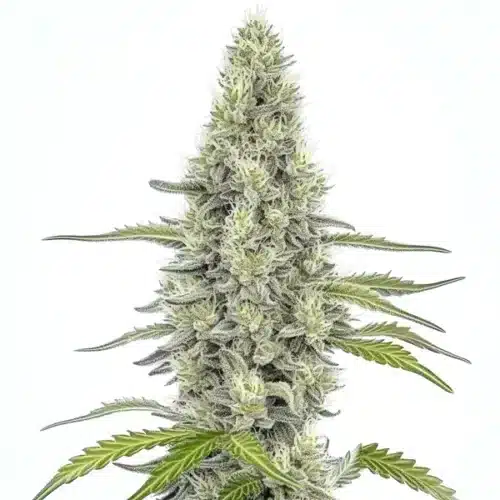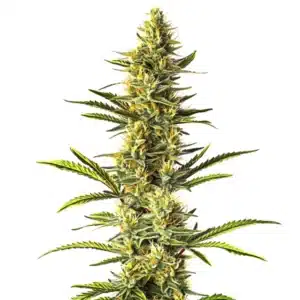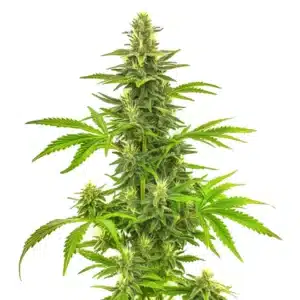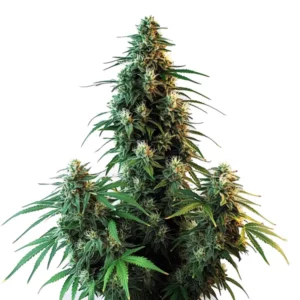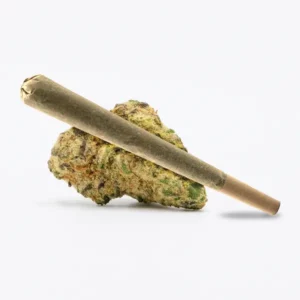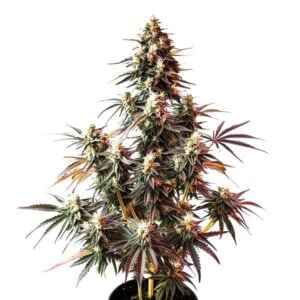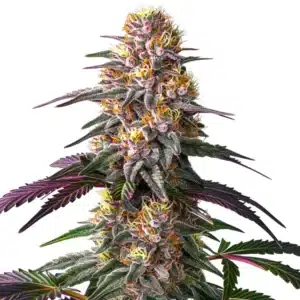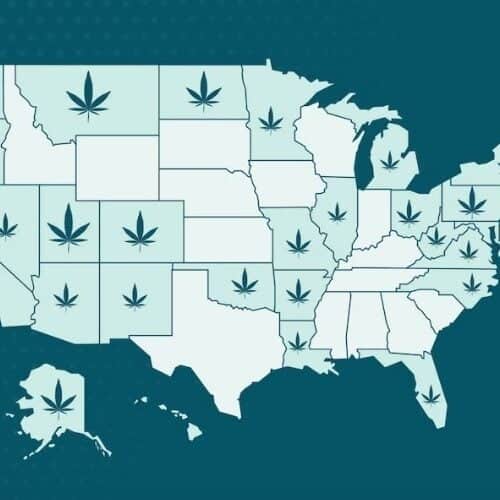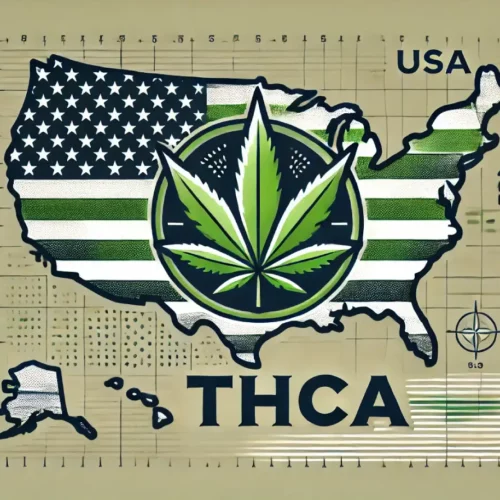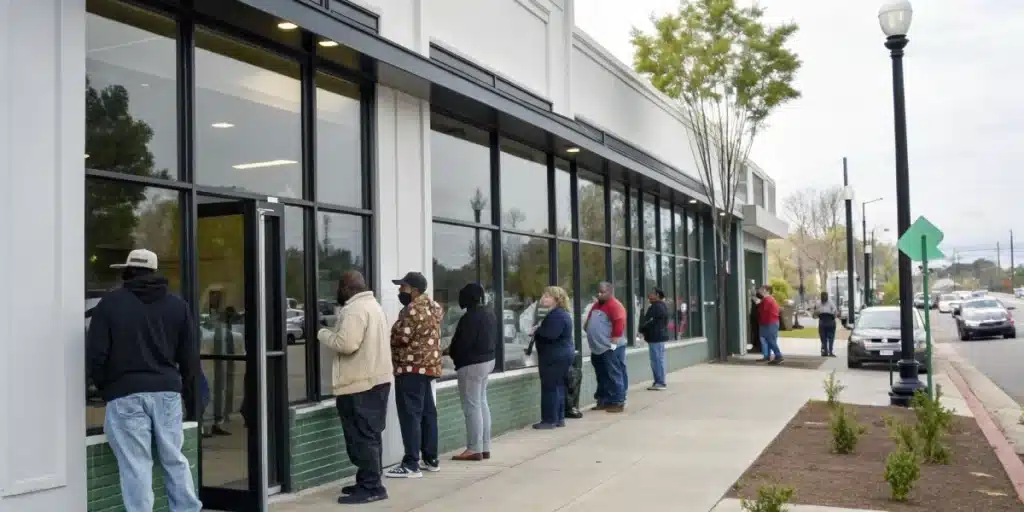
Is Weed Recreational in Mississippi?
Current Legal Status in Mississippi
Medical vs. Recreational Distinctions
Mississippi began a significant transformation in its cannabis policies when it legalized medical marijuana in 2022. After years of legal battles and community activism, the state passed legislation allowing patients with qualified conditions to access cannabis products through licensed dispensaries. This legalization marked a turning point for many residents who had long relied on prescription medications with limited success. Now, cannabis offers a legal, alternative form of treatment, but only for those who follow strict state guidelines.
Recreational cannabis, however, remains illegal. No adult, regardless of age or intent, can legally purchase, possess, or consume cannabis without a valid medical card issued by the state. Mississippi’s laws do not include allowances for personal-use amounts like in other states. The divide between medical and recreational use is sharply enforced, and the law does not consider non-medical consumption for stress, sleep, or general wellness as justifiable grounds. This legal structure keeps the program tightly focused on medical necessity.
Recommended Strains
Mazar
 THC: 20%
THC: 20% Type of seed: Feminized
Type of seed: Feminized Phenotype: Mostly Indica
Phenotype: Mostly Indica Day to flower: 8 - 10 weeks
Day to flower: 8 - 10 weeks
Mazar Auto
 THC: 8% - 10%
THC: 8% - 10% Type of seed: Autoflowering
Type of seed: Autoflowering Phenotype: Mostly Indica
Phenotype: Mostly Indica Day to flower: 8 - 10 weeks
Day to flower: 8 - 10 weeks
State Legislation and Ballot Measures
The legalization of medical cannabis came through Senate Bill 2095, which passed after voters overwhelmingly supported medical marijuana in a 2020 ballot initiative. Despite this clear public interest, state leaders initially overturned the measure due to technical flaws in the initiative process. It took ongoing pressure from advocacy groups and legal reform organizations to restore progress. Eventually, the legislature acted, and a state-run program was launched in early 2022.
Recreational legalization efforts haven’t seen the same success. Multiple proposals have been floated by reform-minded legislators, but these bills often stall in committee or lack enough support to proceed to a vote. Grassroots organizations have been working hard to get a recreational initiative on the ballot, but procedural hurdles continue to block their path. While activists remain hopeful, a lack of political will in the legislature and the complex rules governing ballot initiatives have slowed progress. Still, the drive to expand cannabis rights continues to grow at the community level.
Promos & Deals
Possession and Use Regulations
Allowed Amounts for Residents
Registered medical cannabis patients in Mississippi are permitted to purchase and possess specific amounts of cannabis based on the law’s established monthly limit. The regulation allows for up to 3.5 grams per day, amounting to a 3-ounce maximum per 30-day period. Patients must use dispensaries approved by the Mississippi Medical Cannabis Program, and each transaction is recorded to ensure compliance with monthly caps.
The law requires all cannabis products to be obtained legally through the program. Homegrown cannabis remains illegal, even for medical use, and all purchases must be tied to a medical diagnosis certified by a licensed practitioner. Without a medical card, any possession of cannabis, even a small bud, is considered unlawful. There are no legal gray areas or leniencies for “recreational trial” use. Mississippi’s policy is structured to discourage casual use and focus exclusively on medical necessity verified by documentation and state registration.
Penalties for Illegal Possession
Mississippi enforces strict penalties for anyone caught with cannabis outside of the medical program. If a person is found with less than 30 grams and does not hold a valid medical card, the penalty is a misdemeanor with a fine of up to $250. Though this might seem minor, it’s only applicable for a first offense. Subsequent infractions carry far heavier consequences.
A second offense within five years can result in up to 60 days in jail, in addition to fines. A third offense is categorized as a felony, which brings up to six months of incarceration and a $1,000 fine. If the quantity exceeds 30 grams, the individual faces felony charges from the start. These charges can carry a prison sentence of up to three years and fines that reach $3,000 or more. Having cannabis near a school zone, involving minors, or distributing the product increases penalties significantly. Mississippi has not followed the national trend toward decriminalization, instead opting for enforcement-heavy policies designed to curb illegal use.
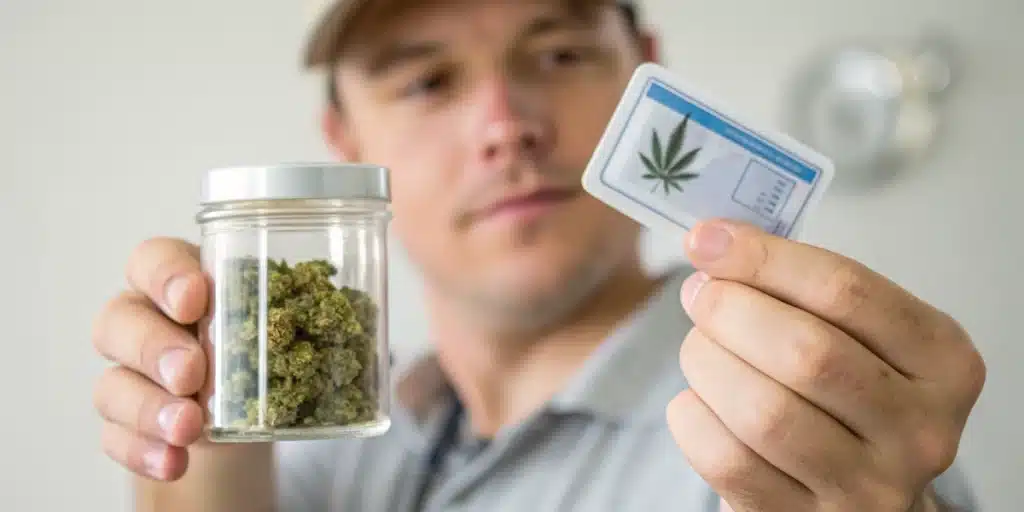
Purchasing Options and Dispensaries
Medical Dispensary Access
The rollout of medical cannabis dispensaries in Mississippi brought relief to many patients across the state. These facilities are regulated by the Mississippi Department of Health and must comply with detailed safety, security, and transparency measures. Dispensaries can only sell to individuals with valid state-issued medical cannabis cards. Every patient is entered into a tracking system, which monitors purchase quantities and prevents abuse of monthly dosage limits.
Inside the dispensaries, patients can access a range of cannabis-based products suited to their medical needs. Offerings include dried flower, tinctures, topical creams, vape cartridges, and edibles. Each product must be lab-tested and labeled according to potency and content. Staff at these locations are trained to help patients understand dosage, product types, and consumption methods. The buying process is confidential, but it requires ID verification and adherence to strict purchase guidelines. Security measures are also in place, including surveillance, to deter theft or unauthorized sales.
Tourist Purchases and Reciprocity
Out-of-state visitors are not permitted to participate in Mississippi’s medical cannabis program. Unlike some states that have reciprocity laws, allowing registered patients from other jurisdictions to access cannabis while traveling, Mississippi requires that patients be full-time residents and registered within its own program. No exceptions are made for visiting patients, regardless of their medical needs or their registration in another state’s system.
This rule presents complications for tourists who depend on medical cannabis to manage chronic conditions like anxiety, arthritis, or PTSD. Even possessing cannabis legally obtained elsewhere is illegal in Mississippi. Visitors are encouraged to review state laws before traveling, as ignorance does not protect against arrest or legal penalties. Advocacy groups have called for more inclusive policies that would accommodate out-of-state medical users, especially those passing through for short visits, but current legislation provides no such protections.
Future Legislation Prospects
Pending Bills and Referendums
Although no bills for recreational legalization have passed, cannabis-related proposals continue to surface during legislative sessions. Some seek to expand access to medical cannabis by adding more qualifying conditions or improving licensing processes for growers and dispensaries. Others aim to lay the groundwork for adult-use markets, including potential tax structures and business licensing models.
Ballot measures remain the most promising route for change. Organizations are actively gathering signatures to qualify recreational cannabis for inclusion on future ballots. Many focus on criminal justice reform, citing the high number of arrests for low-level possession. Others emphasize the economic benefits of legalization, such as new jobs, tax revenue, and reduced law enforcement costs. Though it’s unclear whether any ballot proposal will succeed soon, increasing public pressure and voter turnout may influence legislators to take these initiatives more seriously in the next election cycle.
Public Opinion and Advocacy Groups
Public sentiment toward cannabis in Mississippi is shifting. Surveys show that more than half of the state’s residents support legalization of recreational cannabis or, at minimum, decriminalization. Younger voters overwhelmingly back reform, but there’s also growing support among older adults who have witnessed the success of medical programs in other states. Many now see cannabis as less dangerous than previously believed and more useful for treating pain, inflammation, and anxiety.
Advocacy groups are playing a central role in moving public opinion and educating communities. The Mississippi Cannabis Trade Association, We Are the 74, and other local organizations have launched statewide campaigns to inform voters, engage lawmakers, and correct cannabis-related misinformation. Their work includes community outreach, legal workshops, and lobbying at the Capitol. These groups also support minority and veteran entrepreneurs seeking to enter the cannabis industry, ensuring the benefits of legalization are shared equitably across demographics.
Enforcement and Law Enforcement Practices
Police Procedures and Rights
In Mississippi, law enforcement continues to prioritize cannabis enforcement in areas without medical exemptions. If police detect the scent of cannabis, especially during a traffic stop, they may consider it probable cause to conduct a search. In such cases, patients without their ID cards or those possessing cannabis in unmarked containers can face charges, even if enrolled in the medical program.
Patients are advised to always carry their ID cards and original packaging when transporting cannabis. This protects them in cases of traffic stops or routine checks. Understanding basic rights during police encounters is important: individuals can decline to answer questions beyond identification and can refuse searches unless officers present a warrant or specific legal cause. However, aggressive behavior or non-cooperation can escalate interactions quickly, so remaining calm and respectful while asserting rights is strongly recommended.
Legal Defense for Cannabis Charges
Cannabis-related charges should not be taken lightly in Mississippi. Those accused of possession, intent to distribute, or unlawful transport face severe consequences unless they have strong legal representation. Skilled attorneys may challenge evidence collection methods, argue lack of probable cause, or demonstrate medical eligibility not initially recognized by arresting officers.
Some first-time offenders may qualify for diversion programs or reduced sentencing, especially if the case involves minimal quantities and no prior criminal record. For registered patients, legal defense often centers on proving compliance with state laws, such as dosage limits and proper documentation. As cannabis laws evolve, some judges are beginning to interpret these cases with more leniency. Still, until recreational cannabis is legalized, even minor possession charges can carry major personal and financial consequences.

FAQs about Is Weed Recreational in Mississippi
Can out of state visitors use medical cannabis in Mississippi?
No. Out-of-state visitors are not allowed to use or purchase medical cannabis in Mississippi, even if they are legally registered patients in their home states. The current system is designed exclusively for Mississippi residents who have gone through the state’s certification process. Dispensaries verify patient identity and residency at the point of sale, and anyone who cannot provide proper documentation will be turned away. Bringing cannabis across state lines or using products legally obtained elsewhere is also considered illegal under Mississippi law and could result in fines, arrest, or other legal consequences.
When might recreational cannabis become legal?
There is no official date or confirmed legislation currently set to legalize recreational cannabis in Mississippi. However, advocacy groups are pushing hard for new ballot initiatives, and some lawmakers have begun drafting early proposals for adult-use cannabis. Public support is rising, particularly among younger generations and those focused on criminal justice reform. Still, opposition remains strong in some parts of the legislature, and the process of passing a bill or ballot measure can take years. The most realistic path appears to be through citizen-led referendums aimed at the 2026 or 2028 election cycles.
What penalties exist for small scale possession?
Possession of small amounts of cannabis, defined as less than 30 grams, without a valid medical card results in a misdemeanor charge in Mississippi. For a first offense, the penalty includes a fine of up to $250 but no jail time. However, if a person is caught again within five years, they may face up to 60 days in jail and additional fines. A third offense is considered a felony and can result in up to six months of incarceration. Possession within school zones or involving minors increases penalties. Even though these offenses are considered minor in some states, Mississippi treats them seriously.

